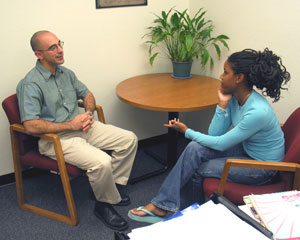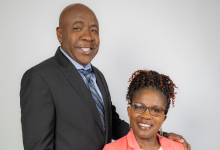Christian Counselling

Counselling-relationship
Therapists and Psychologists approach therapy from values that inherently define who they are. Freud approached counselling from a perspective that saw religion in a negative light. Christian Counselling approaches therapy from a world view that embraces healthy Christian practices and beliefs. Christian Counselling in this context means professional counselling which meets the standard of the governing bodies of psychotherapy in Canada but also adheres to Christian values as its guiding principle. This is not to be confused with counselling offered by pastors or lay members of churches. Christian counsellors are highly trained psychotherapists who hold at least a Masters degree in counselling, and who, as part of their preliminary psychological training, had to do internship in clinical settings where they were trained by experienced psychologists and psychotherapists in the art of counselling. As a result these counsellors have very good clinical skills and are trained in various psychological approaches to problems such as Cognitive Behaviour Therapy (CBT) and psychoanalysis. In this regard, Christian Counselling is not inferior to other forms of counselling, it simply implies that Christian counsellors approach counselling with a worldview that does not suspect a person’s faith as being an hindrance, but instead sees it as an asset that can be used to in the counselling process if the client so desires. Christian Counsellors have also had professional training in the art of combining psychology and spirituality to bring about the achievement of the client’s stated goals. Christian Counselling also means that counselors have not only been trained in psychology, but also in theology, and in the art of uncovering, understanding, and dealing with the spiritual issues which often arise when people of faith are confronted with harsh realities in their lives. For example, a Christian woman who has been divorced, might not only be wrestling with the hurt of the divorce but also with the spiritual struggle of how to view God who has allowed this to happen, and also questions about her role in her faith group as a divorced person. Christian Counsellors are specially trained to understand these issues. Christian Counselling is not limited to Christian issues but covers a wide range of services including marriage and couples counselling, individual counselling, child therapy, and mental health issues. The common thread is that these issues would be addressed in a manner that is open to the spiritual dimension.
Is there a need for Christian Counselling?
In one study that was conducted in the United States, 66% of the respondents said that they would prefer to deal with a therapist who holds spiritual beliefs (Lehman, 1993). This is not surprising seeing that many individuals approach their problem from a spiritual worldview and often feel misunderstood by others who do not understand their spiritual worldview or the nature of spirituality in general. Christian Counselling has been growing in popularity also because Christianity is by far the number one religion in North America. According to the 2001 census, 72% of Canadians identified themselves as either Catholic or Protestant (Statistics Canada, 2003). Statistics show that 72% of women and 57% of men perform private religious practices such as prayer and bible reading at least a few times each year. The same statistics show that 62% of women and 44% of men do so at least on a monthly basis (Clark and Schellenberg, 2006). Similarly, statistics on the United States religious demographics, show that 75.2% of the population considered themselves either Protestant or Catholic (Pew Forum on Religion and Public Life/US religious Landscape Survey).
Christian Counselling and Other Religions
Christian Counseling does not mean that others who hold different faith beliefs are excluded, instead it welcomes people of all faith groups. Because we does not scoff at the supernatural, we find that people of other faiths report that they are more comfortable talking about their faith beliefs with us than to secular counsellors who often minimize the importance of their belief in God. Another reason why it appeals to people of other faith is that it does not focus on debates about theological beliefs but rather on how a person’s beliefs are either helping or hindering in the midst of a crisis. People of faith generally have the same questions concerning God when faced with a life changing experience. For example, questions such as, “Where is God in the midst of my suffering?” and “Why did God allow this to happen?” are common to people of various faith groups when faced with a major life crisis. As a result, the Christian Counselling approach is appealing to people of faith regardless of their religion.
Christian Counselling and the Atheist
Christian Counselling welcomes people who may not have a faith background or who may not believe in God. It does not try to proselytize or impose religious discussions on anyone. Typically, it is clients who raise the religious issues during counselling because they know that the counsellor is open to it. The Christian counsellor’s role during the counselling session is not to preach to the client or to push any religious agenda, rather it is to help the client find a solution or cope with their current problem.
Why the confusion about Christian Counselling?
In the same way that any person in Canada can use the term of psychotherapist, anyone can use the title of Christian counsellor. It is very important for clients to look beyond the title to the qualifications of the person who is doing the counselling. True Christian counsellors will have at least a Masters degree in counselling and training in theology. Clients should also be aware that even with the qualification and the label of Christian counselor, a therapist may not be a practicing Christian and may not even embrace Christian values. If clients are looking for a Christian counsellor who is a practicing Christian, it is important to ask the right questions before booking the interview.



















